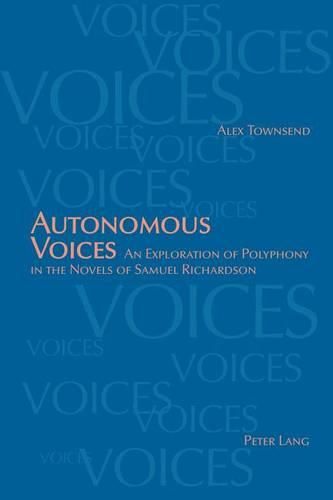Readings Newsletter
Become a Readings Member to make your shopping experience even easier.
Sign in or sign up for free!
You’re not far away from qualifying for FREE standard shipping within Australia
You’ve qualified for FREE standard shipping within Australia
The cart is loading…






The novels of Samuel Richardson are the essential topic of this book. Its main aim is to use Bakhtin’s definition of polyphony as a way into Richardson’s work and, in turn, to provide a basis from which to revise Bakhtin. After tracing the development of psychological realism in the eighteenth-century novel and the growing potential for autonomy in the fictional character in general, the book goes on to examine the potential for polyphony which first emerges in Pamela and reaches its height in Clarissa. Between editions of this momentous novel, Richardson felt compelled to make frantic attempts to control the reader’s interpretation of the text. Lovelace - the villain of Clarissa - acquires a degree of autonomy that bears startlingly vivid testimony to the plurality of human identity itself. Sir Charles Grandison, Richardson’s last novel, is a vivid retreat from the powerful effect of Lovelace.
$9.00 standard shipping within Australia
FREE standard shipping within Australia for orders over $100.00
Express & International shipping calculated at checkout
The novels of Samuel Richardson are the essential topic of this book. Its main aim is to use Bakhtin’s definition of polyphony as a way into Richardson’s work and, in turn, to provide a basis from which to revise Bakhtin. After tracing the development of psychological realism in the eighteenth-century novel and the growing potential for autonomy in the fictional character in general, the book goes on to examine the potential for polyphony which first emerges in Pamela and reaches its height in Clarissa. Between editions of this momentous novel, Richardson felt compelled to make frantic attempts to control the reader’s interpretation of the text. Lovelace - the villain of Clarissa - acquires a degree of autonomy that bears startlingly vivid testimony to the plurality of human identity itself. Sir Charles Grandison, Richardson’s last novel, is a vivid retreat from the powerful effect of Lovelace.